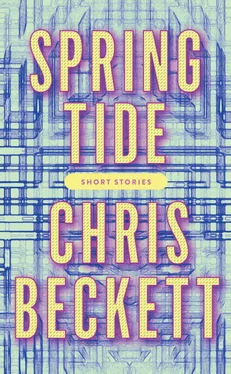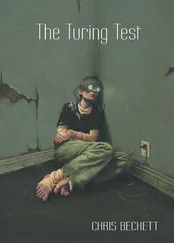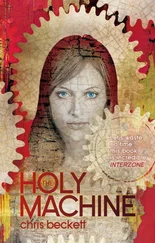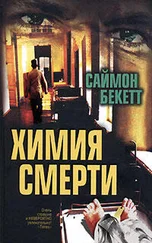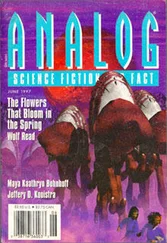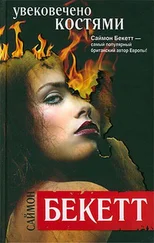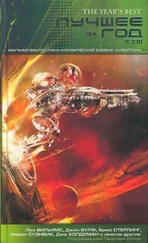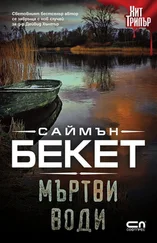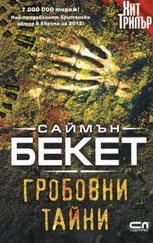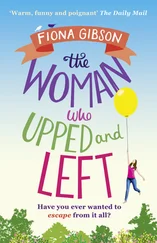There are three pint glasses on the table, each about two-thirds full.
‘Fifteen years I’ve had it,’ Mike says. ‘I got it in America. Everyone thinks I’ve had it engraved with my initials but actually it already had MS on it when I bought it. There was a company in Pittsburgh called Maximum Steel, apparently, and it used to give these things out as gifts to customers. I bought it in a little junk shop in Philadelphia, when I lived over there in the early nineties.’
The key fob is like a slender matchbox in shape, but with rounded-off edges and corners. Set into one face of it is a tiny sphere which Mike rolls back and forth with his thumb, showing on one side a black MS enamelled on a white background, and on the other, a white MS on black.
‘Look at that woman over there with the purple scarf,’ says Dave Greaves. ‘Look at her with her nice new haircut trying to be someone. Here I am, she’s saying, I am Judy Fotherington – or Kath Hesselthwaite, or Trish Underwood or whatever her name might be – I am Judy Fotherington and this is what I stand for and this is what I am doing in the world, and this is how I choose to look.’
Mike presses a catch on the side of his key fob.
‘There’s a complete set of little tools in here, look, miniature versions of the stuff that Maximum Steel used to sell. They fit so snugly inside that you wouldn’t know they were there. A little can opener and bottle opener. A screwdriver on the end. And scissors, look, and a metal toothpick, and here – look – a little blade. They’re real tools too, even though they’re so small. I’ve used all of them at one time or another. You know those moments when you need a bottle opener, or wish you had a knife? Well, here they are and they do the job perfectly. They just need a little drop of oil and a wipe down once in a while.’
He snaps the catch closed and the little tools are gone.
‘But in every city in the land,’ says Dave, ‘there are thousands of women like Judy Fotherington, who stand for all the same kinds of things, are involved in all the same kinds of activities, wear the same kinds of clothes, go out with the same sort of nice but ultimately disappointing men as that bald bloke there she’s looking so delighted with.’
Mike turns the keyfob in his hand, its cargo of keys jangling beneath it.
‘I really like looking after it,’ he says. ‘That’s the other thing about it. I polish it every week or two. That’s why it looks so shiny and new.’
Apart from those pint glasses on the table, there are two packets of dry-roasted nuts and a silver tobacco tin with an ornate letter J embossed into its lid.
‘It probably sounds crazy,’ Mike goes on, ‘but with this in my pocket I feel stronger, as if this little toolkit equips me somehow. Do you know what I mean? The tools and the keys equip me for life. Not that I’m superstitious, mind you. Not at all. Well, you know that, don’t you? You know I don’t believe in anything supernatural. Homeopathy, acupuncture, you name it: I can’t be doing with any of that stuff. But that’s the really great thing about my key fob. It doesn’t work by magic.’
‘People don’t understand numbers,’ Dave says. ‘That’s the thing. I mean, if I asked you how many people there were in this city you’d say – what? – getting on for half a million? You’d say that, and you’d think you’d answered my question, but do you really know what half a million means? I mean, just quickly, without stopping to work it out, do you think there’ll be half a million days in your life? No, nothing like . It won’t even be forty thousand. You could be introduced to ten new people every day of your life, from the day you were born to the day you die, and you still wouldn’t have met the number of people who live in this city.’
‘Psychology, yes,’ says Mike, ‘but not magic.’
‘And this is just one city,’ says Dave, ‘and not even a particularly big one. Yet there’s that woman in the purple scarf, and that bald chap with her, trying to be characters, trying to be individuals, trying to persuade themselves they signify something.’
Jeffrey Timms laughs. ‘Well, perhaps they do , you miserable sod! What makes you so sure they don’t?’
‘There’s just one problem with this key fob,’ says Mike. ‘I’m frightened I’ll lose it. I know it sounds daft but I worry about it every single day. I mean I could drop it down a drain, couldn’t I? Or someone could steal it. Or I could leave it behind on a train, or a bus, or in a taxi. It’s nearly happened more than once, I can tell you. And the maddening thing is that there was another fob exactly the same as this one in the shop where I found it. I just wish I’d bought it while I had the chance and kept it as a spare. Believe it or not, sometimes I actually wake up in the middle of the night and lie there kicking myself that I missed the chance to have that other one sitting safely at the back of a drawer somewhere in case of need. But then I think: no, that would take away from this one. The whole charm of this is it’s the only one I’ll ever have. That’s the point of it really.’
He sighs.
‘But it is hard. In fact, to be honest with you, the worry about losing it almost cancels out the pleasure of owning it at all.’
There are twelve tables in the room, each one surrounded by human beings.
‘And how many pubs are there?’ asks Dave. ‘How many pubs in this city? Sadly not as many as there were, but I reckon it must still be about two hundred or so, wouldn’t you say?’
‘Sometimes I think it would be easier if I just threw it away,’ says Mike Staines.
‘Hard to put a figure on how many of them are this kind of pub,’ Dave goes on, ‘the kind that people like us drink in, I mean, and people like Judy Fotherington there and that bald guy, but let’s say twenty per cent. I reckon it’s probably more than that, but let’s just say twenty. That still makes – what? – forty pubs in this one city where, on this very night, there’s—’
‘Or even give it to someone else,’ says Mike, ‘just so as to be free from the worry of it.’
Jeffrey laughs and pats him on the back.
‘Well, that’s love for you, mate,’ he says.
When the first clamour of birds came sweeping across the lake, the professor’s wife was already wide awake. It was going to be one of those grey luminous days, she knew, when every splash and croak was full of meaning, and things suddenly happened with no apparent cause. She needed to get outside.
But the professor ate his breakfast very slowly, with the paper propped in front of him against a jar of honey.
‘Good lord!’ he observed amiably. ‘What will this awful government do next !’
‘Just go ,’ she answered him in her head. ‘Just drink down your coffee and go!’
He spread another piece of toast, first with butter and then with marmalade, being meticulously careful in each case to go right out to the very edge of the slice. Then he poured himself a second cup, and turned the page.
‘Situation in Europe looks pretty dire.’ He took a bite from his toast and chewed thoughtfully while he continued to read.
What did he need to read the news for anyway? He’d be listening to it on his radio all the way to work, the same stories over and over.
As soon as he’d gone, the professor’s wife rushed out. She didn’t take a picnic, or a flask, or a bottle of water. She didn’t even bother with a coat. She just ran straight down to the lake. There were paths and boardwalks down there that led through the reeds, across the creeks, and between the stands of waterlogged willows. She wandered back and forth, round the bays and prominences, the little beaches, the twisted trees, the decaying wooden jetty. She was listening intently to every little sound, while all the time trying her best not to hear. She was looking everywhere for the smallest signs, but trying simultaneously not to see them. When water birds came and went from the surface, she felt the perturbations juddering right through her. And when bubbles or eddies rose from the depths, stirred up no doubt by creatures hidden below, she softly groaned as if it was her own skin that had been breached.
Читать дальше
